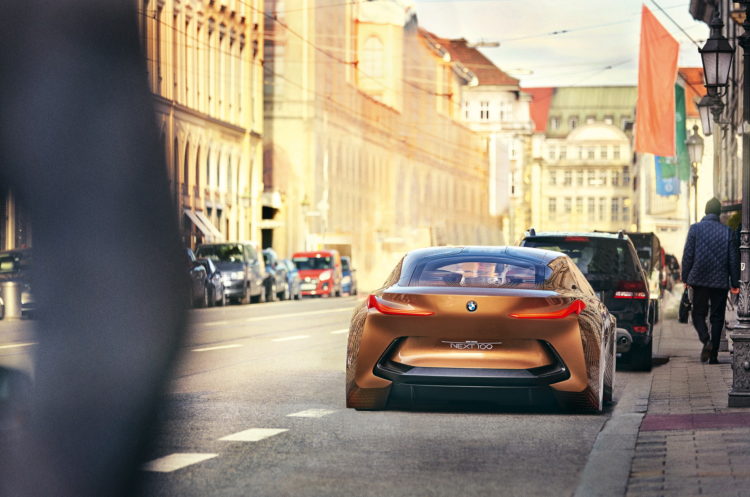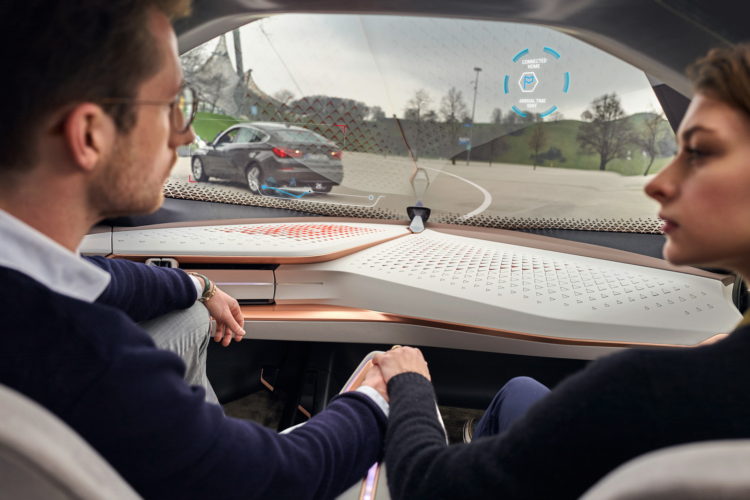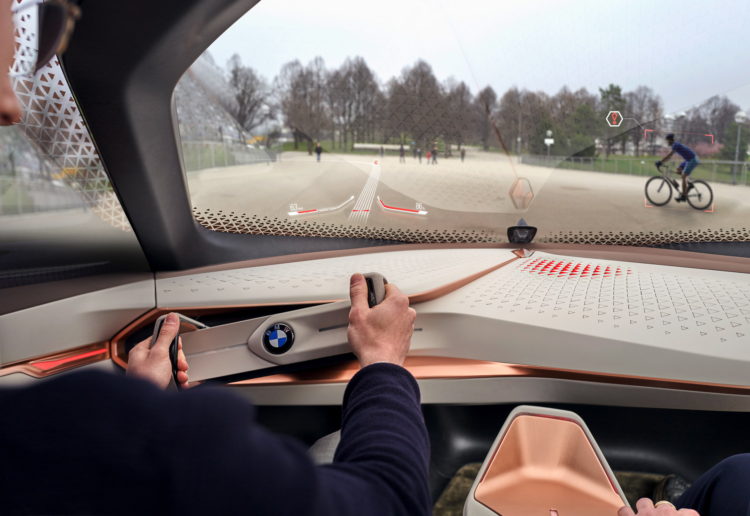At the moment, BMW’s autonomous driver aids are just that — driver aids. The current level of autonomous tech is Level 2, which is basically just various forms of driver assist functions and not actual autonomous driving. For instance, in the new BMW 5 Series, drivers will have the ability to allow the car to steer itself on the highway for a few seconds at a time. It’s quite good at it and can seriously help a driver if they’re tired or drop something or need to help a child with something in the back seat for a moment. In no way is it any sort of autopilot system, where the driver can jump in the back seat like a buffoon and let the car drive itself. It’s just an aid. However, BMW is working hard on advancing these systems and says that a big breakthrough will happen in 2021, with BMW’s iNext.
DriveMag recently spoke with Dr. Dirk Wisselmann, Senior Engineer of Automated Driving at BMW, to discuss these matter further.

According to Dr. Wisselmann, the next step for autonomous driving is Level 3 autonomy. In Level 3, the car will be able to completely take over the act of driving in select circumstances, say, on a highway. At this point, Wisselmann says, the car will tell you it can take over and you can sit back and read the paper. If something were to happen where the car needs the driver to take over, it will warn the driver to retake control. However, Wisselmann points out that redundancies need to be in place for this to happen so that the car can give the drive 5-10 seconds to retake control safely. ” Therefore we need a specific electronic architecture to ensure redundant capabilities that allow the car not to become a hazard.”
Most importantly, though, Wisselmann points out that autonomous cars will need to be able to learn and adapt to situations or they’ll never work. “We don’t face ideal conditions, and the systems today are not able to adapt to changing situations and, most important, they don’t learn from them. They don’t recognize if they make a mistake. In the future, they will learn and evolve.”
A lot of people also bring up the question of morality. What if an autonomous car is faced with a choice of two crashes. For instance, the car in front is braking too hard for it to stop before crashing but if it swerves, it detects it will also crash, in either direction. What does the car do, which car does it decide to crash into? Wisselmann has a simple answer and it’s that automakers cannot make moral decisions. The idea is to completely get rid of crashes and injuries but if one is unavoidable, the car will try and minimize the damage. “But car manufacturers cannot make moral decisions, they simply make the car brake and try to stop. If a collision is unavoidable, then the car searches for evasion space. If there is no free space, an impact will occur but with the lowest energy possible. It’s as simple as that.” said Wisselmann.

“Today, in real life, the kind of accidents where a driver has to chose between killing several people or himself is not seen in statistics – we have zero examples from the real world from which we could learn.”
What will help in the future is a more advanced infrastructure for autonomous vehicles. If the infrastructure is intelligent and can communicate with the cars, there will be less accidents and the cars will be able to learn from their environments easier. However, BMW is developing its technology to work with the current infrastructure. “BMW tries to create autonomous cars that can deal with current road circumstances. If road markings are not available, for example, the car will give back control to the driver. We need high-volume data networks, like 5G, to ensure all the features of a 5th level autonomous car.”

We’re still a long way off from the autonomous car, about ten years before Level 4 autonomy, according to Wisselmann. However, car companies like BMW are now laying the groundwork for such a future. Wisselmann also talks about how autonomous driving will just be an aid to get drivers through the more mundane aspects of driving, such as traffic. The fun part of driving will not only still remain but be encouraged. So, despite what many auto enthusiasts say, the future is bright for the autonomous car.
[Source: DriveMag]





































































